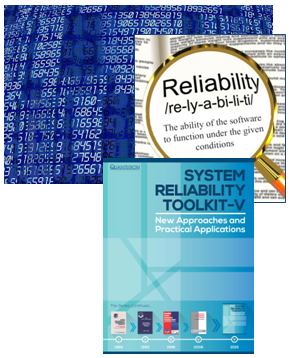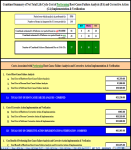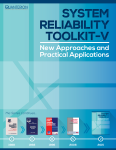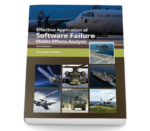| Data & Tools | Publications | Training |
What is it?
 Software Reliability is the probability that software will operate failure-free for a specified period of time in a specified environment. It is an important contributing factor impacting system reliability (which includes hardware and human reliability). Various approaches can be used to improve the reliability of software with an appropriate balance between development time and budget. High software reliability is extremely critical in cyber security applications.
Software Reliability is the probability that software will operate failure-free for a specified period of time in a specified environment. It is an important contributing factor impacting system reliability (which includes hardware and human reliability). Various approaches can be used to improve the reliability of software with an appropriate balance between development time and budget. High software reliability is extremely critical in cyber security applications.
What’s the payoff?
Robust software reliability design, development, test and support approaches help to ensure optimized system performance and total life cycle cost.
How can we help?
- Develop realistic software reliability requirements and software development specifications that include robust software reliability approaches
- Perform reliability analyses and make recommendations to implement a cost-optimized software reliability strategy for your software, products and/or systems
- Collect/analyze your software test data to determine the “best” software reliability model to use
- Collect/analyze your software test and field data to determine reliability trends, root failure causes and potential corrective actions for your software
- Evaluate your software for vulnerability to cyber security attacks and make recommendations for improved protection
Related Data & Tools:
 Total Life Cycle Cost Benefits Calculator for Root Cause Failure Analysis Decision-MakingThe purpose of this Workbook is to estimate the net total life cycle cost (TLCC) impact of performing root cause failure analysis and corrective action (CA) identification, implementation and verification to improve system, product, assembly, component, part or process reliability.
Total Life Cycle Cost Benefits Calculator for Root Cause Failure Analysis Decision-MakingThe purpose of this Workbook is to estimate the net total life cycle cost (TLCC) impact of performing root cause failure analysis and corrective action (CA) identification, implementation and verification to improve system, product, assembly, component, part or process reliability.
Related Publications:
 System Reliability Toolkit-VThe System Reliability Toolkit provides technical guidance in all aspects of system reliability, addressing both software reliability and human factors to better reflect the changing requirements of defense community.
System Reliability Toolkit-VThe System Reliability Toolkit provides technical guidance in all aspects of system reliability, addressing both software reliability and human factors to better reflect the changing requirements of defense community. Effective Application of Software Failure Modes Effects Analysis – 2nd EditionThis book is a practical step-by-step guide for reliability or software engineering practitioners. It illustrates each of the steps for performing a software FMEA and presents dozens of software failure modes and root causes. This book covers the eight possible viewpoints for conducting a SFMEA - requirements, interface design, detailed design and code, vulnerabilities, corrective actions, serviceability, usability and development processes.
Effective Application of Software Failure Modes Effects Analysis – 2nd EditionThis book is a practical step-by-step guide for reliability or software engineering practitioners. It illustrates each of the steps for performing a software FMEA and presents dozens of software failure modes and root causes. This book covers the eight possible viewpoints for conducting a SFMEA - requirements, interface design, detailed design and code, vulnerabilities, corrective actions, serviceability, usability and development processes.
Related Training:
Staff at the RMQSI Knowledge Center have provided many years of value-added consulting and training experience in the RMQ Engineering disciplines, to both commercial and government clients. Browse through our website to learn more and contact us to see how we can develop and present customized training to your organization.

